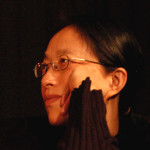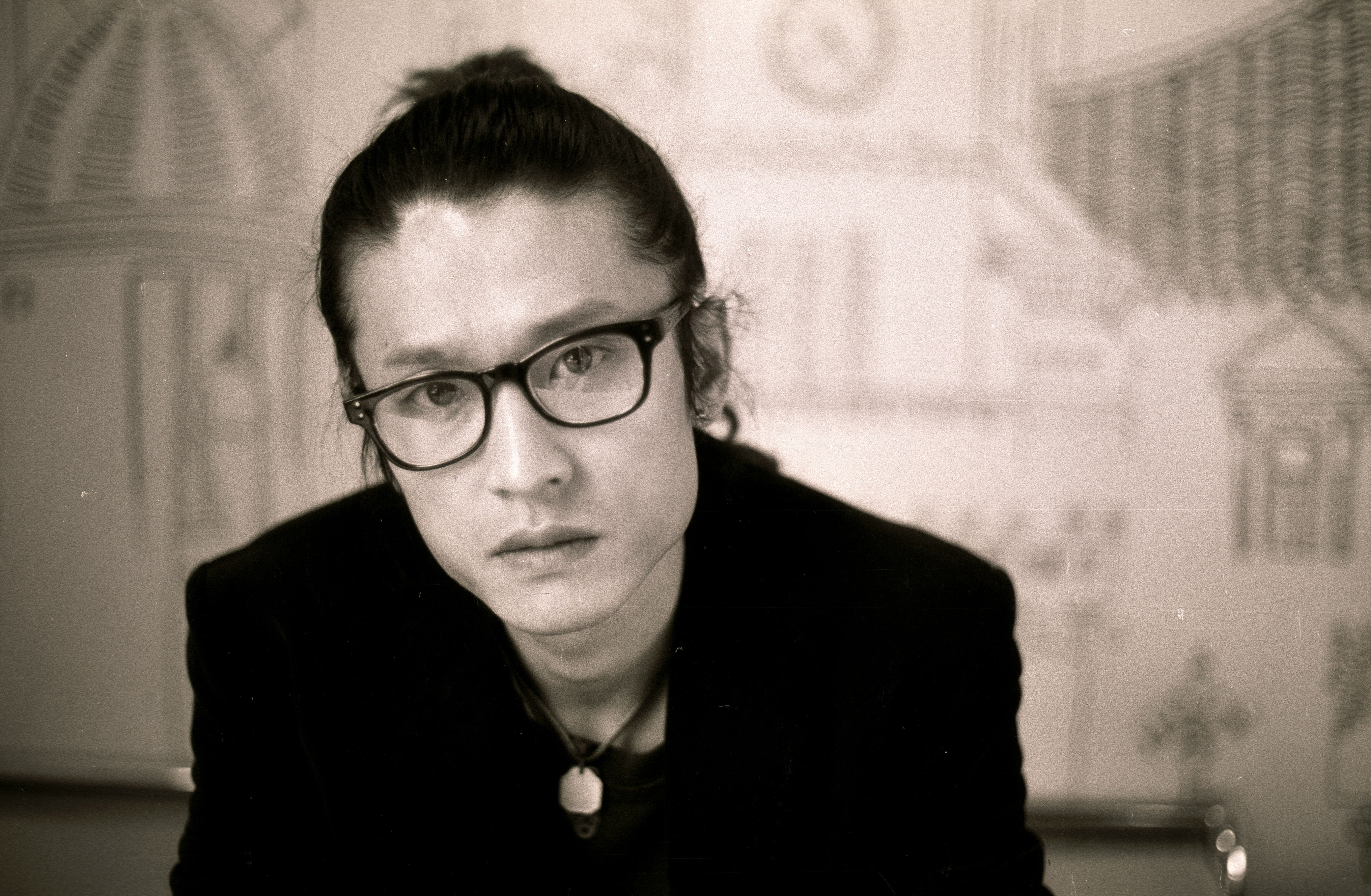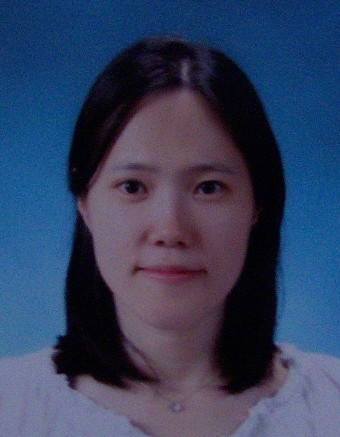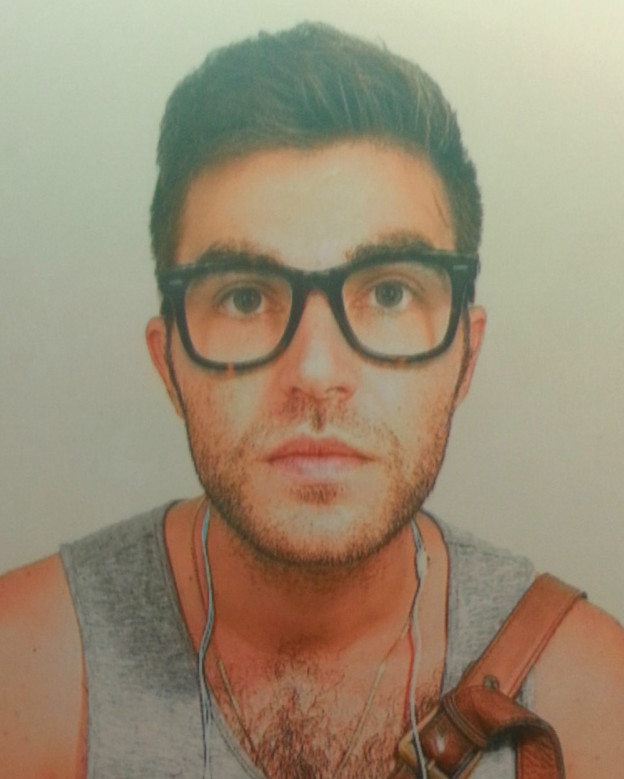Five poems by Christoph Meckel, translated by Roy Scheele.
Leiter
by Christoph Meckel1.
Ein Holzdieb, der nachts
gestohlen hatte bei mir
brachte am Tag eine Leiter, ohne Sprossen.
Er sagte: ein gutes Stück Arbeit,
das beste, für dich,
Geduld, ich bring dir die Sprossen
einzeln, alle
im Lauf der Tage, wieviele brauchst du.
Aber er kam nicht, und ich
wartete nicht, erwarte ihn nicht.
2.
Holzstöße im Regen.
Er wittert, kommt und stiehlt
was er tragen kann, für seine Leiter.
Kurz und brüchig, aber er baut an
er schnitzt seine Sprossen,
er messert, schält, baut an
und stellt seine Leiter in die Luft.
Sie trägt ihn. Er steigt
hoch hinaus in das Licht,
fliegt zu den Flügeln ins Unsichtbare.
Ladder
by Christoph Meckel1.
A thief, who’d stolen
wood from me one night,
the next day brought a ladder without rungs.
He said: A good piece of work,
the best, for you.
Have patience, I’ll bring you the rungs
separately, all
in due course, as many as you need.
But he did not come, and I
did not wait, I do not expect him back.
2.
Woodpiles in the rain.
He sniffs the air, comes and steals
what he can carry, for his ladder.
The wood is short and brittle, but he cobbles it together
he carves the rungs,
plies his knife, strips the bark, slaps it together
and stands his ladder straight up in the air.
It bears his weight. He climbs
high up into the light,
flies toward his wings up yonder, out of sight.
translated from German by Roy ScheeleKind
by Christoph MeckelEs zog den Schlüssel aus der Tür.
Es warf ihn in die Sonne und er schmolz.
Das Haus war leer, fort war das letzte Tier.
Es lagen bloß noch ein paar Steine hier
und nachts zum Feuermachen etwas Holz.
Der Morgen war von Tau und Asche kalt.
Es ging auf einem Weg in einen Wald.
Der Engel sah es und vergaß es bald.
Child
by Christoph MeckelHe drew the key out of the door.
It melted when he threw it in the sun.
The house was empty, to the last creature.
Only a pair of stones lay naked here,
and wood enough to make a fire from.
Dew and ashes in the morning cold.
Along a path into the woods he stole.
The angel noticed him—and let him go.
translated from German by Roy Scheele[Die Ungewißheit wurde größer]
by Christoph MeckelDie Ungewißheit wurde größer.
An einem Abend im Herbst
war auch der Regen nicht mehr gewiß. Er zischte
im Wind von der Schwarzen Möhr
und schlug in die Bäume. Er sagte:
Hörst du den Regen vorm Fenster,
ich liebe den Regen.
Und ihre Antwort: was heißt das
was meinst du mit Regen.
(Er schlug auf das Dach. In die Nußbäume.
Rauschte. War Regen.)
[The uncertainty grew greater]
by Christoph MeckelThe uncertainty grew greater.
One autumn evening
the rain too was no longer certain. It hissed
in the wind from the Black Moor
and struck at the trees. He said:
Do you hear the rain outside the window,
I love the rain.
And her answer: What does that mean
what do you mean by “rain”?
(It beat down on the roof. In the nut trees.
It poured. It was rain.)
translated from German by Roy Scheele[Vorsicht! Farbe! Himmel frisch gestrichen!]
by Christoph MeckelVorsicht! Farbe! Himmel frisch gestrichen!
Von den Wetterwänden
rauscht und zischt es—Triefen, Sprühen, Klatschen.
Sommergelächter des Regens in der Traufe.
Katzenhagel. Sindflut in Platanen.
Regenbogen. Donner. Blaue Flecken.
Nasse Küsse.
Fortgeschwemmte Kleider.
[Caution! Color! Freshly painted sky!]
by Christoph MeckelCaution! Color! Freshly painted sky!
It murmurs and whispers
from the turn in the weather—dripping wet, spraying, splashing.
Summer laughter of the rain in the eaves.
Cats and dogs. Deluge in the plane trees.
Rainbow. Thunder. Specks of blue.
Wet kisses.
Clothes washed away.
translated from German by Roy ScheeleDie Kirschbäume
by Christoph MeckelDas wissen wir: als Gott sich am Finger verletzte
schuf er die Kirsche aus einem Tropfen Blut.
Du hast es leichter als er, die Kirschen sind fertig
wenn du die Augen aufschlägst im grünen Juni.
Du kannst in die Kirschgärten gehn am Mittag
und zwischen den Blättern leben im offenen Himmel.
Die Sonne berührt dich mit warmen Fingern
und der Maulwurf im Loch hört deine Kerne fallen.
Mit purpurnen Lippen springst du vom Baum
und wer dich sieht, der möchte dich küssen.
Nachts hörst du den Regen. Er wäscht die Kirschen
und zählt seine Tropfen bis zum Morgen.
The Cherry Trees
by Christoph MeckelThis we know: when God injured his finger
he created the cherry out of a drop of blood.
You have it easier than he did: the cherries are ready
when you open your eyes in the green of June.
You can walk through the orchard at midday
and dwell in the open heaven between leaves.
The sun touches you with warm fingers
and the mole in his tunnel hears your cherry pit drop.
You spring from the tree with purple lips
and whoever sees you must kiss you.
You hear the rain at night. It washes the cherries
and numbers the drops until morning.
translated from German by Roy Scheele



